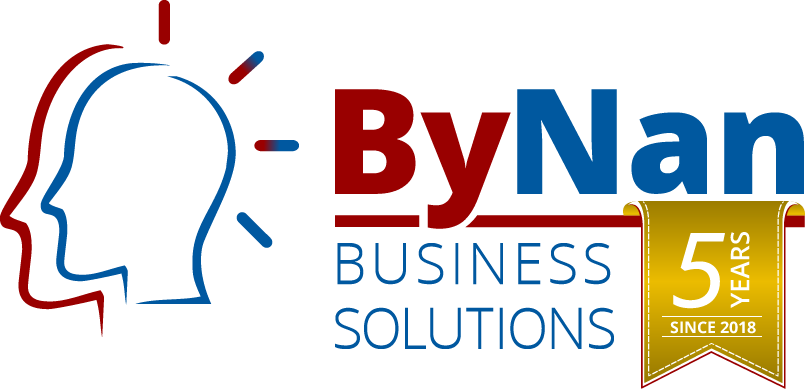Finding the right business coach can be a game-changer for your professional growth and the success of your business. A skilled coach can provide insight, guidance, and support to help you navigate challenges and opportunities, and reach your full potential.
However, with numerous coaches and programs available, it’s essential to consider certain factors. Most importantly, you want to ensure you make the best choice for you and your business. Review these key considerations to keep in mind when selecting a business coach…
1. Relevant Experience
When choosing a business coach, look for someone who has relevant experience working with businesses similar to yours. Above all else, you want a coach that understands the unique challenges and opportunities you face.
The right business coach can offer tailored strategies and solutions, making their guidance more effective and applicable to your specific circumstances. This may be more important than asking about similar industry experiences because they can tell you how they can help you.
Where available, attend one of their workshops first or go through a no-obligation consultation call.
2. Coaching Approach
Coaches have different coaching styles, ranging from hands-on and directive to facilitative and collaborative. Consider your preferred learning style and the type of guidance you respond to best.
Do you thrive with a coach who provides step-by-step instructions and concrete action plans?
Or do you prefer a coach who encourages self-discovery and fosters your own problem-solving skills?
Choosing a coach whose coaching approach aligns with your needs and preferences will ensure a more productive and enjoyable coaching experience.
3. Availability and Communication
Effective coaching requires open lines of communication and consistent availability. Before committing to a coach, discuss their availability and preferred communication methods. Understand how often you can expect to have sessions and ensure the coach is responsive to your needs and queries.
Regular and timely communication will help you track progress, address challenges promptly, and maintain momentum toward your goals.
In many cases, business coaches put a lot of time and focus on methods of accountability. This could mean weekly check-ins and communication outside of your sessions or program. Consider how often you need this and ask if the same schedule is standard for your coach of choice.
4. Training and Certification
Look into or ask about the training and certification the coach has achieved. It is true that there’s no single type of coaching certification that’s more highly regarded than the rest. So skills-specific training is important in addition to training in coaching.
All professional training and certifications demonstrate that the coach has acquired knowledge and skills to guide and support you effectively. This can be considered hand-in-hand with their personal experience and employment history (where shared/advertised).
Look for coaches who are affiliated with recognized organizations, and perhaps even local business centres and networks.
5. References and Testimonials
It’s undoubtedly positive and insightful if you can see reviews on a business coach’s website. Try to request references from the coach’s past or current clients to gain insight into their effectiveness and success rate.
Hearing about others’ experiences with the coach can provide valuable information about their coaching style, impact, and ability to deliver results. This alone may be all the information you need on whether or not you’re choosing the right business coach.
Reach out to these references to ask specific questions about the value they gained from working with the coach.
6. Personal Compatibility
Building a strong rapport and trust with your coach is crucial for a successful coaching relationship. Seek a coach with whom you feel comfortable being open and vulnerable. This is important because the more they know about you, the more effective they can be with you.
Personal compatibility plays a significant role in establishing a safe and supportive environment for honest conversations and personal growth. Trust your instincts and choose a coach with whom you resonate and feel confident sharing your aspirations, challenges, and concerns.
Where possible, start by having a consultation call with the business coach you’re considering.
7. Your “Unreasonable Friend”
A great coach will not only support and guide you. They will also challenge you to push beyond your comfort zone to achieve your full potential.
Your coach should act as your “unreasonable friend” – someone who is emotionally invested and willing to provide honest and constructive feedback. It’s as true for business coaching as it is for personal coaching.
This feedback may sometimes be tough to hear. But it is vital for your growth and development as a leader and entrepreneur.
8. Fee Structure and Services
Discuss the coach’s fee structure and the services included in their coaching package. Ensure you have a clear understanding of what you will receive in terms of coaching sessions, resources, and support.
Inquire about any additional costs or services that may arise during the coaching engagement. Transparent communication about fees and services will help you make an informed decision and avoid any surprises down the line.
Coaching for business owners can range from sessions to programs, to a combination. Whatever the option, ask questions about both the short-term and long-term plan.
9. Confidentiality
Confidentiality is of utmost importance in the coaching relationship. Your coach should have a clear policy on maintaining the confidentiality of your discussions and any sensitive business information you share.
This assurance creates a safe space for open and honest conversations without the fear of information being disclosed to third parties.
Prioritize coaches who demonstrate a strong commitment to confidentiality, as it is vital for building trust and facilitating open dialogue.
10. Follow-Up and Ongoing Support
Consider whether the coach provides follow-up and ongoing support after the coaching engagement ends. A good coach understands that personal and professional development is an ongoing journey.
They may offer additional resources, provide opportunities for continued coaching sessions, or schedule periodic check-ins. All of this is to ensure that your progress continues even after the formal coaching concludes.
Ongoing support can help you reinforce your learning, navigate new challenges, and sustain the positive changes you have made.
With these considerations of choosing the right business coach, you can make a decision that aligns with your goals, values, and preferences. Remember, the right coach will be your trusted partner, guiding and supporting you as you strive for success. With this deeper understanding of what to look for in a business coach, you can take the next step.
At ByNan Business Solutions Inc., we are dedicated to empowering entrepreneurs and business leaders to reach their full potential. We offer a tailored approach to help you overcome challenges, develop essential skills, and achieve your business goals. If you’re ready to take your leadership journey to the next level, we invite you to take our COACHING FIT ASSESSMENT. Don’t miss out on the opportunity to elevate your leadership and drive your business forward.

